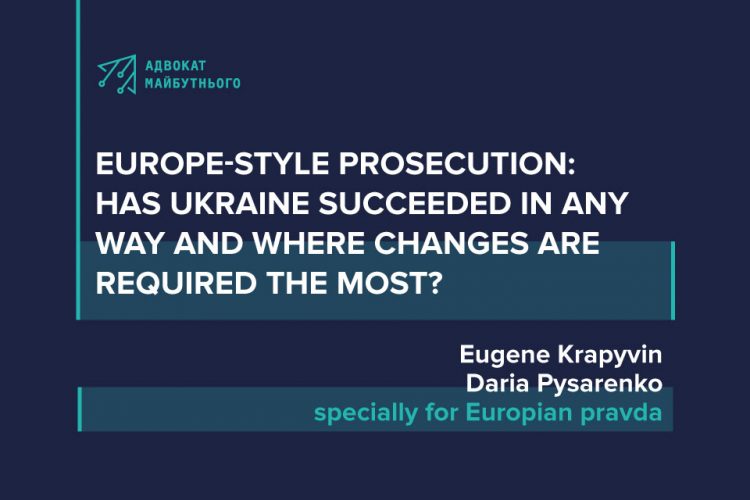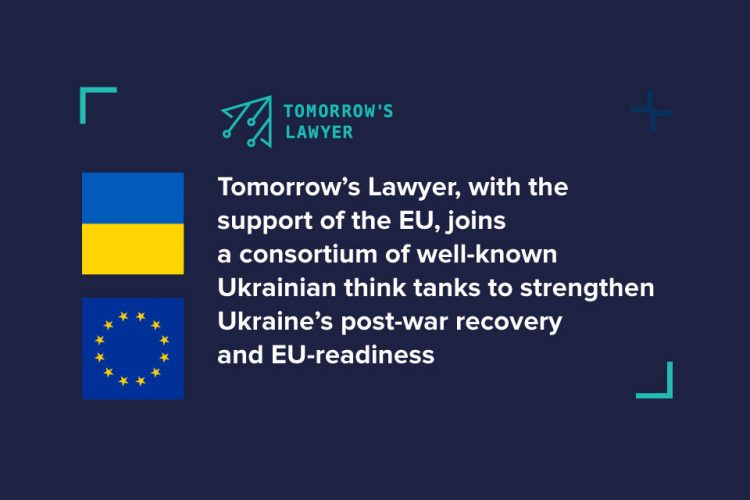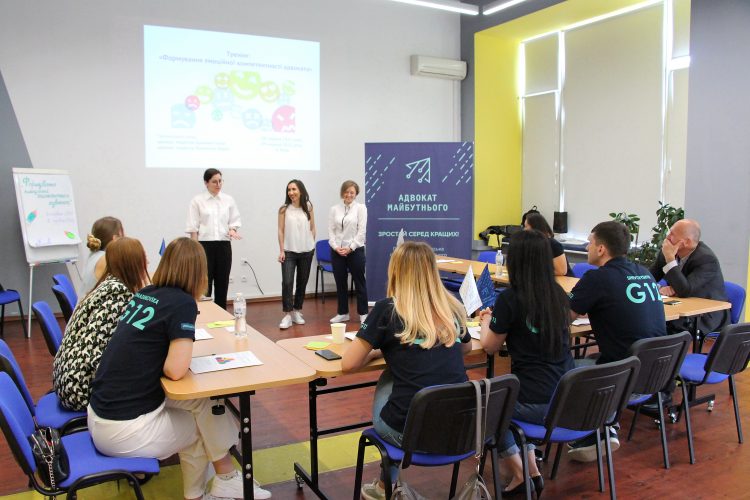
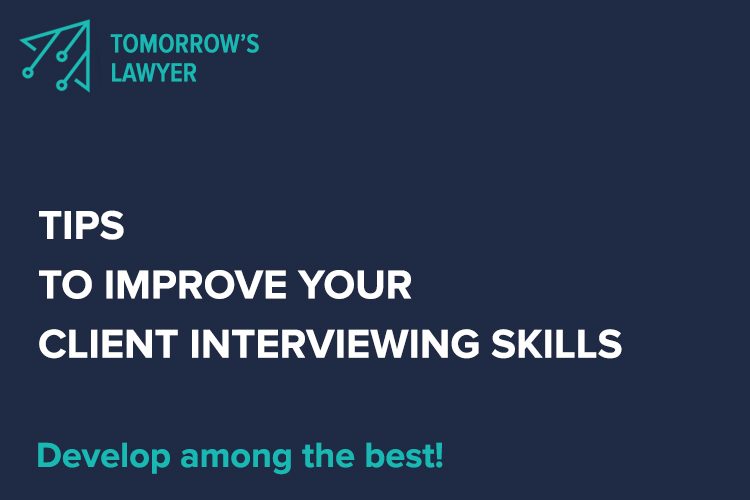
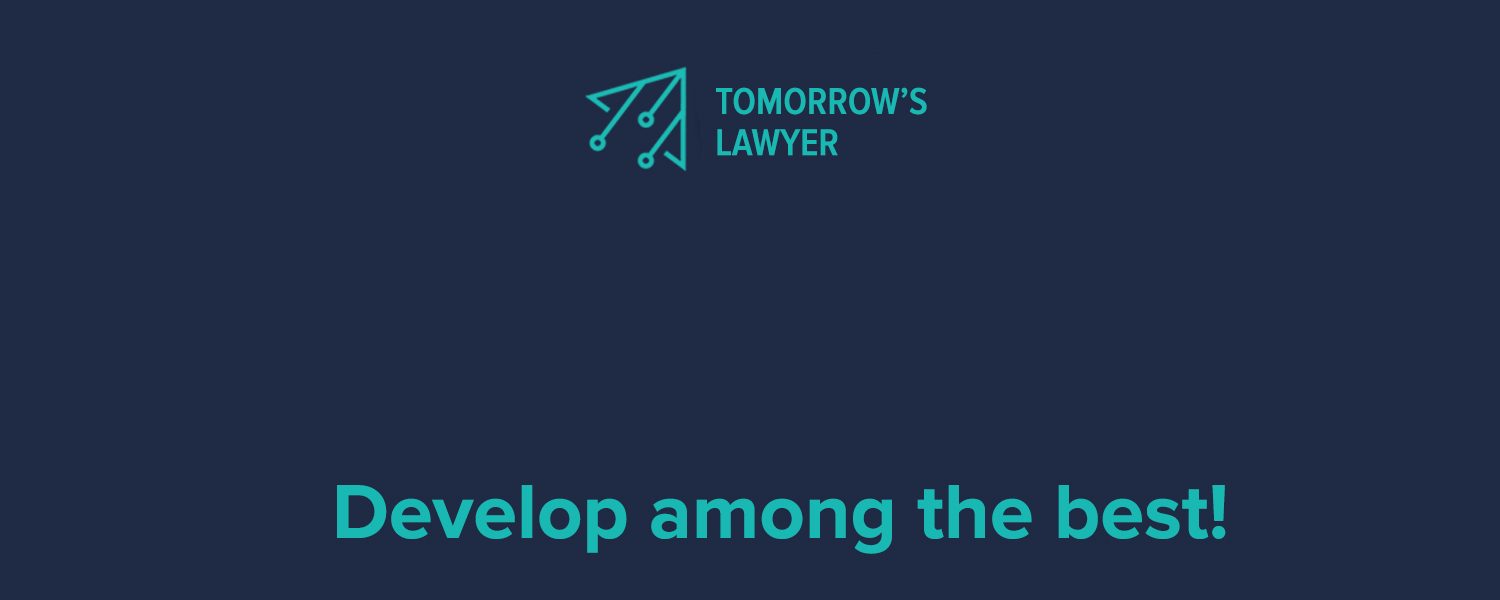
Tips To Improve Your Client Interviewing Skills
The participants of the “Tomorrow’s Lawyer” Program have completed their first module training devoted to working with the client. For three days, the participants together with trainers and experts, have been working out the best practices of communication, interviewing and consulting the client.
It is important to emphasize that lawyers, along with experts, learned ethical aspects of client relations. They clarified the responsibilities of the client and the role of lawyer in providing access to justice.
Also, a great amount of time was devoted to working with emotional intelligence and stress management. After all, lawyers often take over all the emotions and experiences of clients. Having mastered this topic at the training, lawyers gave advice on holding interviews with clients for the Zakon & Business publication.
A client interview is the first step in providing quality legal services. This is the foundation of the lawyer’s work with the client, on which all communication is based. However, it is not always possible to build fruitful relations with people who turn for legal assistance.
Secrets of a dialog
Almost every lawyer has clients whose communication ends even before it has started. It adversely affects the quality of legal aid. Efficient work requires establishing a fruitful contact, and obtaining all necessary information on the matter, to set relations of trust and confidence. How to organize and conduct client interviews to achieve the goal?
“Qualified lawyer is a good listener”
 Svitlana Pogasiy,
Svitlana Pogasiy,
Lawyer, Cherkassy Legal Bureau
The interview – this is what the lawyer encounters at the initial stage of working with the client. First the lawyer should receive information about the circumstances of the case and what is happening or has already taken place, as well as to find out the interest of the client. Only if these goals are achieved can we talk about creating a solid foundation for further work with the client. Mistakes made during an interview, such as receiving inaccurate or incomplete information, deficiencies in determining the client’s interest, in the best case will lead to another interview, in the worst case, to poor-quality legal assistance.
Before the first meeting with the client, where usually an interview takes place, one should get prepared, paying special attention to own appearance and workplace. If there is an opportunity to talk to client prior to the meeting, do not hesitate to do so. This how you will find out the key problem and be able to take some initial preparations in advance, namely: to check the legislation, relevant court practice, to determine the list of issues that needs to be addressed. In addition, you may wish to request the client to bring all documents relevant to the case.
During an interview, you should act as an active listener, that is:
- Always remind your client that you are listening. For example, you can occasionally nod your head as a sign of your attention;
- Make brief remarks about what you have heard (“Yes, I understand”);
- Repeat a phrase pronounced by a person to show that you understand what he/she is talking about;
- Look straight at the client’s eyes;
- Observe the client.
After all, words are only a small part of the conversation.
If you do not pay attention to the expression of the eyes, gestures and movements, then you can grasp only a small part of what the person tells. Psychologists say that the words account for only 7% of the message, 38% of the content is perceived because of the volume of voice, tone, etc., and 55% – due to facial expressions;
- Do not interrupt the client, abstain from judgments or condemnation. With your remarks, you should only confirm that you listen carefully and understand the client’s feelings.
“Empathy helps to identify the true interest of the client”
 Anna LYSKO
Anna LYSKO
Attorney, Director of the Lviv Mediation Center:
– In modern conditions, when artificial intelligence is snapping at lawyers’ heels, it’s time to pay special attention to human skills, which can significantly improve the effectiveness of working with the client.
Remember that the position does not always coincide with the true interest of the client. People usually turn for legal help in a rather difficult time of life. They are being guided by emotions and present to the lawyer the hardest position, which often does not meet their interests, and sometimes even contradicts them.
Uncovering genuine interest will save time on responding to impulsive client’s decisions, help develop an effective legal strategy, and to maximize client’s satisfaction with the legal assistance. It is always necessary to take into account: even if the lawyer won the case in court, the client is the one who will live with this decision.
In an interview with a client, it is important to use the skill of empathic listening. Remember that empathy is not compassion (!), but the ability to feel the emotional state of another person. Avoid mentioning previous experience (“yes, I know, I’ve already had such case”), applying templates, stereotypes towards the client, differentiate your own interests (victory and “destruction” of the opponent) and the interests of the client.
Empathetic listening will help you discover the true interest of the client, establish a trusting relationship, and will rest clients assured that you appreciate them.
“Let your client speak without restraint”
 Natalya Nagorna,
Natalya Nagorna,
Lawyer
– It is essential to establish contact with the client. Therefore, you should answer the questions that concern your client most, especially if this is his/her first interaction with the lawyer, namely:
- Emphasize the confidentiality of the meeting, which is guaranteed by the law “On the Bar and Legal Profession ” and the Code of Ethics;
- Indicate the time frames for the interview;
- Determine the cost of services regardless of whether they are provided on a paid basis or free of charge. It is advisable to report this immediately.
You need to give the client the opportunity to speak without restraint. This how they will relax, increase their self-esteem and feel empathy.
The lawyer must be able to lead the conversation so that the client could reveal the most important information. To do this, respond to important facts and ignore those that are not relevant to the case; tactfully interrupt the story to find out the essential moments and record important information.
“Always take time to get prepared for the meeting, no matter what workload you have, otherwise don’t appoint it at all”.
 Denys Shkarovsky,
Denys Shkarovsky,
Lawyer, VB Partners:
– Often, we treat an interview formally. As if we know in advance what the client is going to ask for and what he wants, or what he really needs and what he will end up with (I think, after the first module of the program, many have confessed in such behavior at least to themselves). And this is a fundamental mistake you then have to correct later when working on a case.
There are occasions when the first meeting takes place during a short break between other activities: “I have 10 minutes, say what you need”. However, in spite of the load, if the meeting is scheduled, you have to get prepared otherwise you don’t appoint it at all. Before each visit of the client you need at least 5-10 minutes to adjust, make a plan of conversation, a list of questions, understand what will be discussed (if possible).
Quite often we do not listen to the other person.
While a person speaks, the next question keeps lingering in your head. First, because of this, important details are lost. It is worth remembering that the client, as a rule, is not a lawyer. Those little things that he/she does not take into account may have a significant bearing on the case. On the contrary, something that the client tells a long time may not bring the solution to the case. Secondly, due to such behavior, the client will not have confidence in the lawyer, therefore this may adversely affect further cooperation.
No matter how positive meeting would be, there are cases when everyone has made his/her conclusion. I think this is due not only to the difference in the thinking of a lawyer and a client. Therefore, after the meeting, it is necessary to sum up: what has been agreed, what exactly should be done by each party and in what terms. It is desirable to put this in e-mail.
“Do not overload your client with obscure legal terminology”
 Tetyana Yushchenko
Tetyana Yushchenko
Lawyer, Chair of the NGO “Social Law Alliance”:
– Try to establish contact with the client from the first second. Show a respectful attitude to the client personally, his/her problems, no matter how simple they would seem. In this case, excessively friendly manners are also to be avoided, because in the future you risk taking his problems as your own.
The next step may be the unobtrusive demonstration of professional competence. Share your experience in dealing with such circumstances, tell about the legal positions that have emerged in court practice. Such actions establish trust between the lawyer and the client, and facilitate the perception of important information.
Also, do not overload your client with obscure legal terminology.
At the end of the interview, I propose to voice the prospects of satisfying the client’s interests.
Identify the ultimate goals and specify whether there is a vision of how to achieve them. It is important to avoid promises and unjustified guarantees.
It is worth remembering that the client is not Aladdin, but a lawyer is not a gin: not all wishes can be fulfilled.
“It is critical to apply key statements – phrases used by client”
 Oleksandr Bayderin
Oleksandr Bayderin
Lawyer, Partner at CLS law firm:
– In the initial interview it is important to focus on the meeting environment and the details that will help create comfortable atmosphere for negotiations. In this sense, the main role is to determine the psychotype and needs of the client according to the information available to the lawyer, including from open sources.
This, from personal experience, I can say that clients who appreciate privacy notice the presence of a folder marked “attorney-client privilege” on the table. There are many similar examples.
A well-balanced dealing with ambivalence at the first contact will enable the lawyer to save time and quickly achieve the goal – to understand the essence of the client’s problems. At this stage, it is important to adjust to the emotional state, client’s gestures, timbre of the language and other features of his behavior.
I usually invite a person to tell about the circumstances that led him/her to turn for legal assistance, managing the dialogue through questions. Clients often deviate from the essence of the problem, so the task of the lawyer is to return the client back to the problem. But you should not do this by means of direct warning or by persuading to “go to the bottom line”. It is important to gently bring the person to the topic.
For example, during one of the last interviews, the client, having heard a question about the position of the head of the department of the state authority, resorted to a story about the events of old days – the relationship of his friend and this lady. A careful remark about the positive qualities of both characters in this story and the question of whether the client feels that the lady is ready to review her negative decision in case of providing her with additional documents of the company allowed to return the conversation to the essence of the problem.
In the aspect of summing up the results of the interview, as well as in general, in its process, it is important to apply key statements – phrases that the client uses. First, it will help convince the client that his lawyer listens to him attentively. Secondly, it is through the use of key statements that we can make sure that we understand the purpose and objectives of our cooperation with the client.
The “drive” caught at the first meeting in the relationship between lawyer and client can facilitate further communication. However, it does not replace the systematic support for loyalty and trust in you.
The opinions expressed in this article are the authors’ own and do not necessary reflect the views of the partners of the “Tomorrow’s Lawyer” Program.
The “Tomorrow’s Lawyer” Program is being implemented by the Ukrainian Bar Association and the Bar Association of Legal Aid Providers, with the support of the United States Embassy and The Quality and Accessible Legal Aid in Ukraine Project funded by the Government of Canada and implemented by the Canadian Bureau for International Education (CBIE).
The “Tomorrow’s Lawyer” Program was developed during 2016-2017 with the support of the project “Quality and Accessible Legal Aid in Ukraine” with an expert contribution from the Canadian Bar Association.
